
US President Donald Trump revoked a 2023 executive order signed by Joe Biden that aiming to reduce the risks that AI poses to customers. The order also directed agencies to set standards for that testing and address related chemical, biological, radiological, nuclear, and cybersecurity risks.
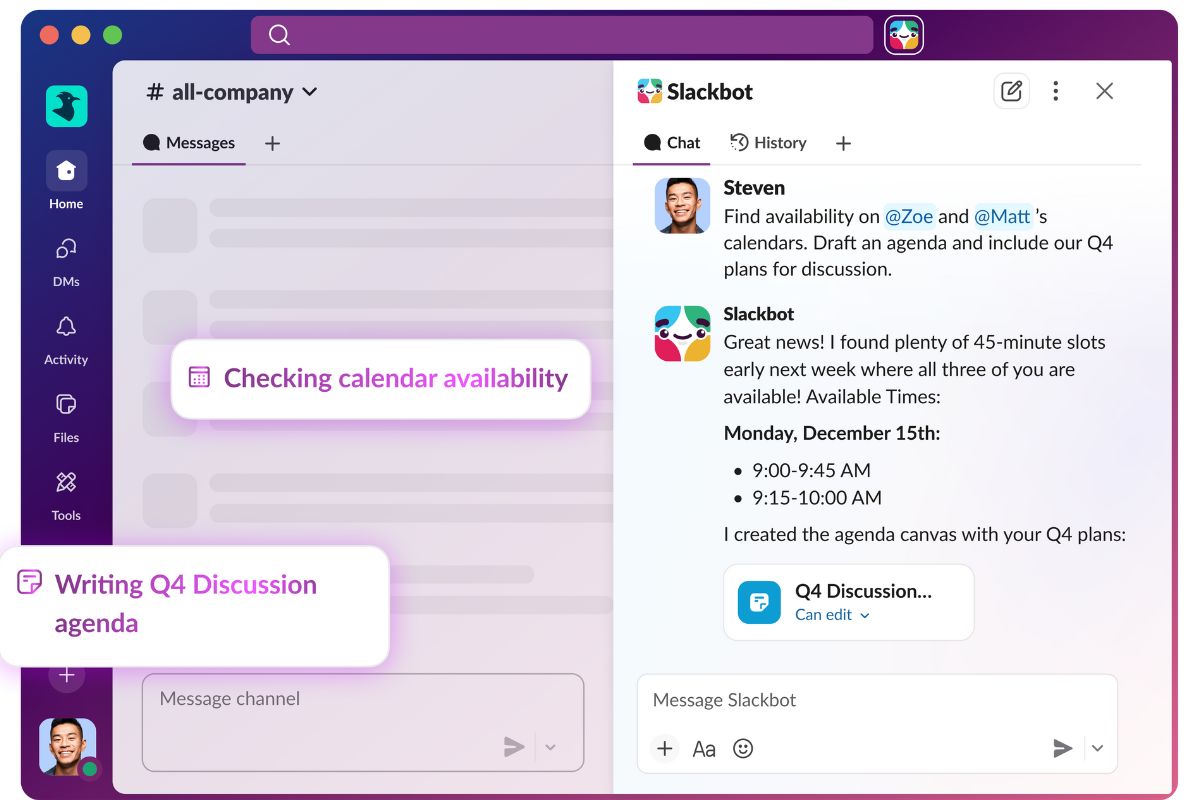
Slack has worked the entire last year on upgrading its enterprise-focused communication and collaboration platform with agentic artificial intelligence (AI) capabilities. One of the biggest announcements was made in October 2025, when the Salesforce-owned company revealed its plans to evolve Slack into a personal agent that works on a conversational interface.
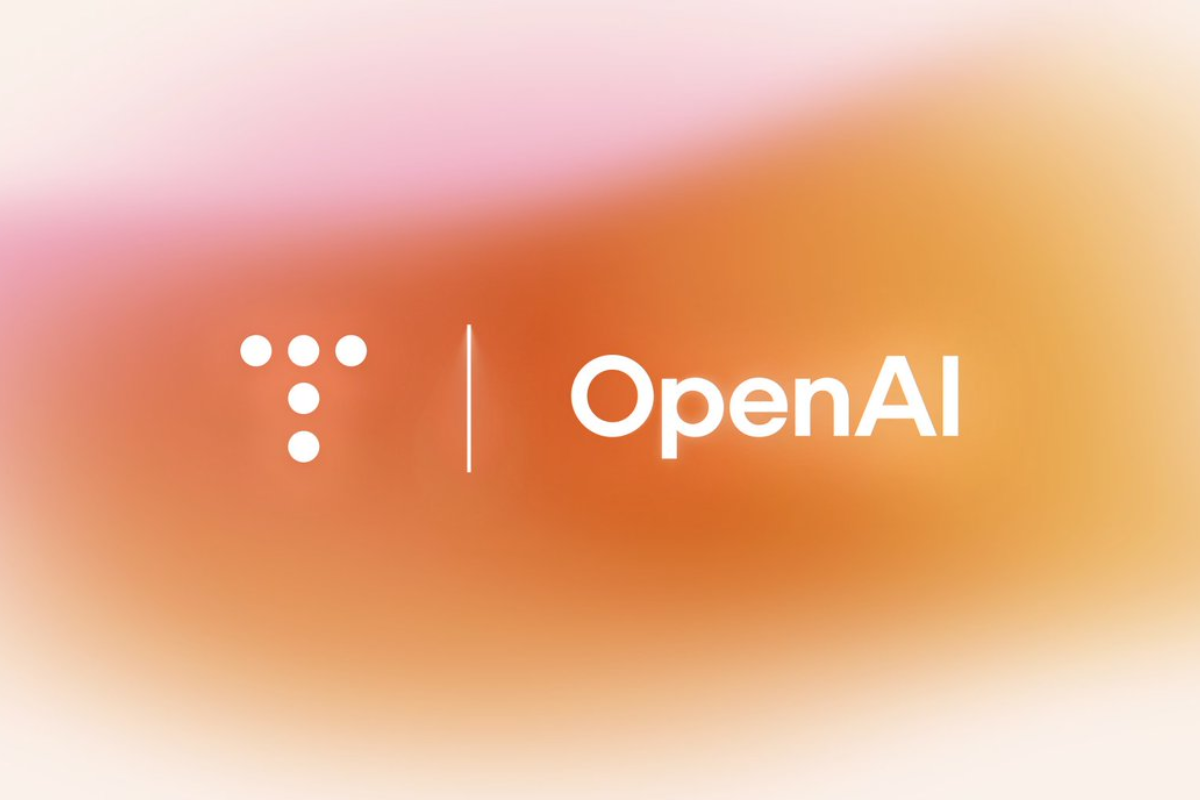
In a post on X (formerly known as Twitter), the official handle of OpenAI announced the acquisition of Torch, adding, “Bringing this together with ChatGPT Health opens up a new way to understand and manage your health.” In addition to purchasing the startup, the AI giant is also onboarding the entire staff of Torch, which comprises four people.

Apple and Google have announced a multi-year AI partnership that will bring Google’s Gemini technology into Apple Intelligence and power the long-delayed advanced Siri. While Apple says its privacy standards will remain intact, the deal has raised questions about how user data will be handled. Clearer details are expected closer to Siri’s rollout later this year.

Google and Apple announced a multi-year collaboration on Monday. This move will see the Mountain View-based tech giant’s Gemini artificial intelligence (AI) models and cloud technology power the next generation of Apple Foundation Models. The two tech behemoths will collaborate to power upcoming features part of the Apple Intelligence suite, including a more advanced and personalised version of Siri, which has been on the cards for some time now but is yet to be rolled out.

Google’s AI Overviews has come under scrutiny again after reportedly sharing incorrect medical advice in search results. An investigation found errors in responses about cancer diets, blood test ranges and women’s health, prompting Google to remove some summaries. The incident raises concerns as many users rely on AI Overviews at the top of Search for medical information.

Anthropic, on Sunday, introduced Claude for Healthcare, a set of custom artificial intelligence (AI) tools aimed at healthcare professionals and consumers seeking information in this area. The offerings include the chatbot powered by a custom Claude Opus 4.5 AI model, third-party integration, as well as agentic skills. The AI startup has also partnered with several hospitals and healthcare companies to help them adopt its latest offering.
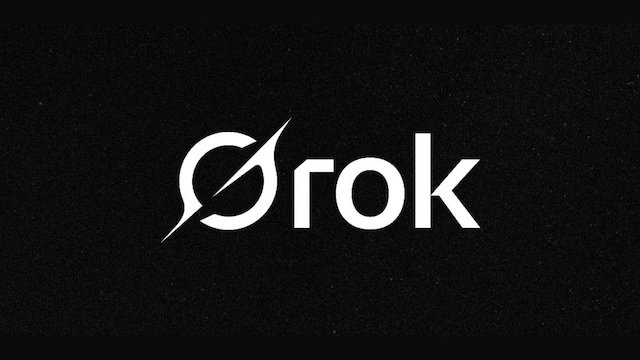
Grok has been temporarily suspended in Indonesia and Malaysia. The xAI’s artificial intelligence (AI) chatbot received global criticism after it began editing images of users posted publicly on X (formerly Twitter). The feature was widely exploited by some users to generate sexually inappropriate images of others without consent, and many countries, including the European Union (EU), India, Indonesia, and Malaysia, had questioned the social media platform and xAI over safety guardrails.

Google has announced new AI tools for online shopping, including an open commerce protocol, a retailer chat agent, and new ad formats in Search. The Universal Commerce Protocol aims to let AI systems, retailers, and payment platforms work together across the shopping process. Google is also launching Business Agent for in Search chats with retailers and adding new data fields in Merchant Centre. A new Direct Offers pilot will show discounts in AI Mode when shoppers are ready to buy.

Google has launched the Universal Commerce Protocol (UCP). This open system will soon power a new checkout feature on eligible Google product listings in AI Mode in Search and the Gemini app. This will allow shoppers to check out from eligible US retailers right as they’re researching on Google. Google built the UCP with companies like Shopify, Etsy, Wayfair, Target, and Walmart. The new framework will allow users in the US to buy products directly from Google listings using Google Pay. Google said that it will soon support PayPal as a payment option.

Microsoft, on Thursday, introduced Copilot Checkout, a new artificial intelligence (AI)-powered shopping experience for its chatbot that allows users to make purchases right from the chat window. With this release, the Redmond-based tech giant has joined OpenAI, Google, and Perplexity in the rising trend of AI shopping tools. While the tech giant is a late entrant in this space, it has already forged partnerships with Shopify, PayPal, and Stripe for the capability.

Bixby, on an unspecified beta version of the upcoming Android 16-based OneUI 8.5 update, was spotted using Perplexity's capabilities to answer complex queries. Now, an X user claims that Samsung could also integrate DeepSeek's generative AI features to power Bixby Live on OneUI 8.5, along with Perplexity. Samsung is reportedly making the move to compete with Google's Gemini Live assistant. Bixby could also get new features in the future, including generating answers based on a phone's camera feed.

X has reportedly restricted Grok AI image generation and editing to paid users after backlash over sexually explicit and violent deepfake images. The tool had allowed users to manipulate photos, often targeting women. According to new reports, the move followed pressure from UK authorities and threats of regulatory action. Government sources urged Ofcom to use its powers under the Online Safety Act, including possible restrictions on X. Non-paying users can still access limited image tools through Grok’s separate app and website.

OpenAI for Healthcare was introduced on Thursday as a new suite of artificial intelligence (AI) tools designed for hospitals, doctors, and other healthcare institutions. The main offering is a custom-designed version of its chatbot, dubbed ChatGPT for Healthcare. The San Francisco-based AI giant says the tools will enable the institutions to offer more consistent and high-quality care for patients, while remaining compliant with national security and privacy standards.

Google is rolling out a major set of Gemini-powered artificial intelligence (AI) features in Gmail. Announced on Thursday, the Mountain View-based tech giant said these new capabilities bring Gmail to the “Gemini era.” The most notable is the integration of AI Overviews, which now powers the search experience and email summaries in threads with large numbers of replies.

In a post on X, Similarweb shared the “generative AI website worldwide traffic share” data. The web traffic analytics platform revealed how the footfall for various AI websites changed over the course of the last 12 months, or the entirety of 2025. One of the biggest takeaways was the decline of ChatGPT’s traffic share, which dropped from 86.7 percent to 64.5 percent.

Grok, the artificial intelligence (AI) chatbot created by Elon Musk’s xAI, has sparked a major controversy following an update to its image editing capability. The chatbot received a feature that allowed it to edit any public image posted on the social media platform. Soon after, several users began exploiting the feature by asking the AI chatbot to make sexually suggestive edits to women’s images.

Meta has announced new features for its Meta Ray-Ban Display smart glasses at CES 2026, including a built-in teleprompter and EMG-based handwriting input using the Meta Neural Band. The teleprompter will roll out in phases, while handwriting support is limited to Early Access users in the US. Meta also expanded pedestrian navigation to four more cities. At the same time, the company paused plans to launch the glasses outside the US due to strong demand and limited inventory.

OpenAI unveiled ChatGPT Health, a dedicated health and wellness experience that allows users to connect their personal medical records and fitness apps to ChatGPT for context-aware responses on lab results, appointments, diet, and exercise advice. Data in the Health space is isolated and encrypted with enhanced privacy protections, and OpenAI said it does not use this data to train its foundation models.

Razer has entered the AI devices race with Project Ava, a holographic desktop companion unveiled at CES 2026. It features a 3D mini avatar that reacts to users, powered by xAI’s Grok models. The device targets gaming on Windows, supports screen analysis via USB-C, and is now open for reservations at $20. It will be shipped in the second half of 2026.

YouTube Music is dealing with a wave of AI-generated songs cluttering Explore and recommendations, frustrating listeners trying to discover new artists. Users say disliking tracks or resetting history has not helped filter them out. Similar issues are being noted on Suno-driven platforms like Spotify and Amazon Music, highlighting a broader AI music discovery challenge.

Motorola’s showcase at the Consumer Electronics Show (CES) 2026 included two major AI announcements. First is Qira, the Lenovo-owned company’s unified AI platform that preserves context and memory when the user moves from one device to another. The second is Project Maxwell, a wearable companion device built on the Qira platform. It is currently a proof of concept with no launch date in sight.

At CES 2026, Nvidia revealed the Vera Rubin AI platform, a six-chip supercomputing architecture in full production, along with open AI models and tooling to accelerate reasoning-based applications. It also launched the Alpamayo family of open reasoning models and simulation datasets for autonomous vehicles, aimed at improving safety and interpretability in AI decision making.
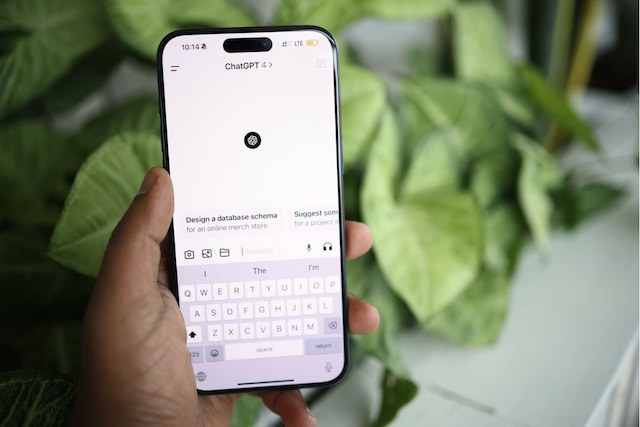
OpenAI’s ChatGPT is reportedly handling a surge in healthcare queries, with over 40 million users asking medical questions, many from rural communities and often outside clinic hours. A common theme is health insurance help, including plan comparisons, claims and billing. It shows AI filling gaps in access to medical information, though accuracy and hallucinations remain ongoing concerns as usage scales.

At CES 2026, AMD unveiled its Ryzen AI 400 and PRO 400 Series chips with up to 60 TOPS of AI acceleration, the gaming-oriented Ryzen 7 9850X3D desktop processor and a new Ryzen AI Halo developer platform. AMD also announced ROCm 7.2 software support for Windows and Linux, aimed at simplifying AI workloads on next-generation PCs.

Intel on Monday unveiled its Core Ultra Series 3 processors at the CES 2026. It is claimed to be the first compute platform built on the Intel 18A semiconductor process, delivering performance, graphics and battery life upgrades over the previous generation. Dubbed Panther Lake, the Intel Core Ultra Series 3 processors feature a hybrid CPU architecture with performance and efficiency cores, along with upgraded integrated graphics based on Intel’s Xe architecture.

Amazon is bringing its artificial intelligence (AI)-powered version of its Alexa assistant, Alexa+, to the web. On Monday, the Seattle-based tech giant announced that Alexa+, which was previously available only via the company’s Echo and Fire TV devices, and the redesigned Alexa app, will now also be accessible on the browser.

MSI showcased its refreshed Prestige business laptops and new Raider, Stealth, and Crosshair gaming models at CES 2026. The updated Prestige lineup uses Intel Core Ultra Series 3 processors and is now available for pre-order, with sales starting January 27. MSI also introduced lighter Prestige models, the Modern 14S and 16S laptops, high-power Raider 16 HX series gaming laptops, the award-winning Stealth 16 AI+, refreshed Crosshair models, and the Claw 8 AI+ Glacier Blue handheld, all featuring updated designs and improved cooling systems.
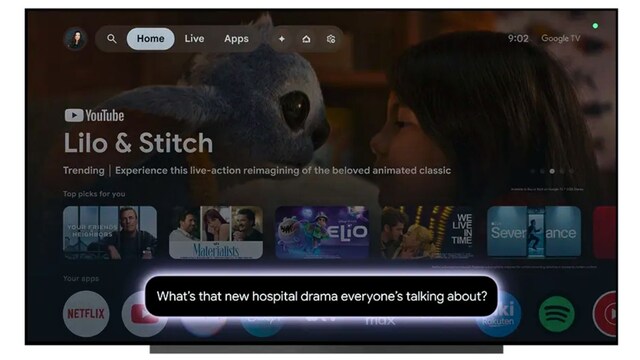
Gemini for Google TV is getting a major upgrade. The artificial intelligence (AI) assistant for the streaming platform was introduced in September 2025 to replace the older Google Assistant and has been steadily expanded to more smart TVs. Now, at the Consumer Electronics Show (CES) 2026, the Mountain View-based tech giant is previewing a set of new features that will soon be rolled out to users.

In recent weeks, the rumour mill has suggested that Samsung is preparing a major shift in its artificial intelligence (AI) strategy as it looks to onboard Perplexity as an AI assistant on Galaxy phones. According to a recent report, the South Korean tech conglomerate is testing a new hotword for invoking the AI assistant on future Galaxy phones, similar to “Hey Gemini” for Google’s AI assistant that currently exists on Galaxy devices.

Qualcomm has announced the Snapdragon X2 Plus chipset ahead of CES 2026. The new compute platform features the company’s third-generation Oryon CPU architecture and an 80 TOPS neural engine for local AI inference. It is positioned within the Snapdragon X Series and will power the first wave of Copilot+ PC laptops arriving in early 2026.

Ahead of CES 2026, Qualcomm detailed announcements across automotive, IoT, and robotics. The company highlighted wider adoption of Snapdragon Digital Chassis in vehicles, new Dragonwing processors for edge AI and vision systems, and a general-purpose robotics architecture built on the Dragonwing IQ10 Series. The chipmaker will also host an exhibition where some of these might be demonstrated.
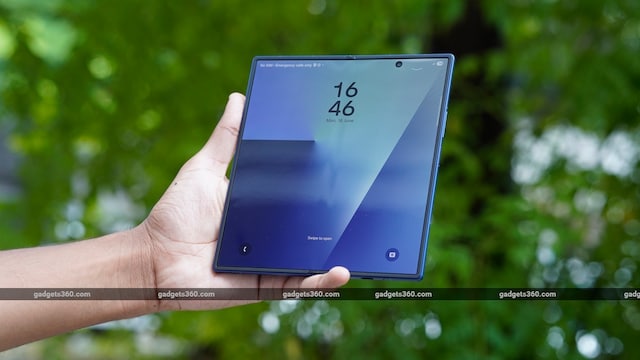
Samsung, which had rolled out Gemini-backed AI features to about 400 million mobile products, including smartphones and tablets, by last year, plans to boost that figure to 800 million in 2026.

Plaud, the San Francisco-based artificial intelligence (AI) startup, has launched NotePin S, the latest version of its wearable recording and notetaking device. The successor to the Plaud NotePin, which was launched in August 2024, comes with one major upgrade — a physical button. Unlike the predecessor, which operated based on haptic touches, the newer model offers a more reliable way of registering input.

Microsoft Chairman and CEO Satya Nadella has outlined his vision for the artificial Intelligence (AI) landscape in 2026, highlighting a transition beyond standalone models and toward AI systems designed for real-world use and impact. In a year-end post titled “Looking Ahead to 2026,” Nadella wrote that the industry is moving past early discovery phases and into “widespread diffusion” of AI technologies.
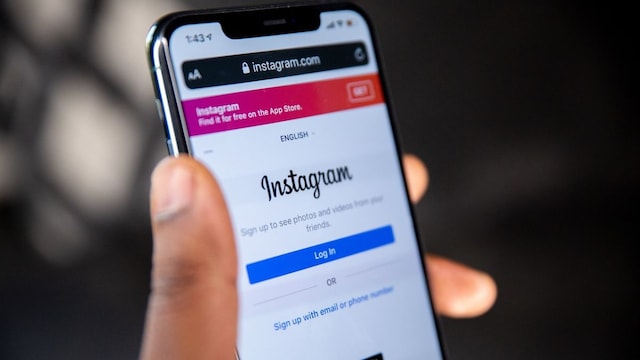
Instagram Head Adam Mosseri believes that the rise of artificial intelligence (AI)-generated images and videos is forcing the platform to evolve quickly. The Meta-owned social media platform gained popularity for its image and video-centric feed, and is a major driver of the creator economy, which is run by influencers and content creators. However, the executive thinks that AI-generated content is improving so fast that soon it might become impossible to distinguish it from camera-captured content.

Perplexity’s Aravind Srinivas said AI packed into local device chips that handle inference could pose the biggest threat to traditional data centres, signalling a shift from server-centric processing. He also discussed autonomous AI agents, the role of browsers in AI infrastructure, and the contrast between human curiosity and artificial systems’ limitations.

Europe’s banking sector may reduce more than 200,000 jobs by 2030 as lenders adopt AI technologies and move services online, analysts say. The Morgan Stanley analysis reported by the Financial Times projects that roughly 10 per cent of roles at major banks could be lost, particularly in internal operations, with some institutions already announcing workforce reductions.

Samsung’s 2026 roadmap includes the integration of artificial intelligence (AI) into all of its devices. The statement was made by TM Roh, the Head of Mobile eXperience (MX) and Device eXperience (DX) Divisions, and President and co-CEO of Samsung Electronics, during the company’s new year address. Samsung Electronics Vice Chairman and the Head of Device Solution (DS) Division, Jeon Young-hyun, also delivered his address to the company.

Samsung on Friday unveiled Freestyle+, its newest portable projector designed to bring smarter and flexible entertainment across a wide range of spaces. As per the South Korean tech conglomerate, it will be showcased at the Consumer Electronics Show (CES) 2026 in Las Vegas, which begins next week. The updated Freestyle+ builds on the design of the original model, while introducing a suite of artificial intelligence (AI)-backed picture optimisation features.

DeepSeek’s latest paper introduces Manifold-Constrained Hyper-Connections (mHC), a method designed to make large AI model training more stable and efficient by constraining residual signal flow. The architecture was tested on models up to 27 billion parameters and showed improved training stability without excessive overhead. Research focuses on reducing costly training failures rather than hardware power changes.
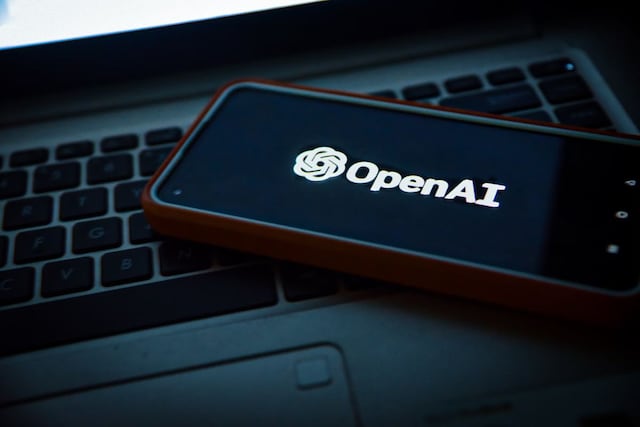
OpenAI is reportedly increasing its focus on the company's audio-based artificial intelligence (AI) models. As per the report, the San Francisco-based AI giant has combined several teams, including engineering, product, and research, to develop a new audio generation model. This model is said to power the company’s audio-first AI device, which could be launched later in 2026.

The New Year is often the peak occasion for personalised digital interactions, and in 2025, artificial intelligence (AI) tools have quietly become part of that ritual. Instead of generic forwards, more users are turning to chatbots to craft messages that sound intentional and tailored. Whether it’s ChatGPT’s polished tone, Gemini’s creative flair, or Claude’s refined structure, AI platforms have been widely used to generate customised greetings, multilingual text and stylised formats.

OpenAI and Jony Ive’s mysterious artificial intelligence (AI) device has been teased multiple times in the last few months. From the AI giant’s CEO, Sam Altman, to Ive himself has hinted at what the device could be and what it definitely is not, but no concrete details were ever shared. However, a new leak now claims that there is not one but three devices under development.

The latest expansion underscores xAI's ambitious push to compete more effectively with industry leaders OpenAI's ChatGPT and Anthropic's Claude by training increasingly advanced models. The company's supercomputer cluster in Memphis, Tennessee, known as Colossus, is touted as the largest in the world.

Apple’s journey in the artificial intelligence (AI) space has been lacklustre. The Cupertino-based tech giant first announced its foray into the space with Apple Intelligence at its Worldwide Developers Conference (WWDC) in 2024. However, a new report now claims that the iPhone maker is now poised to turn its fortunes around in 2026.
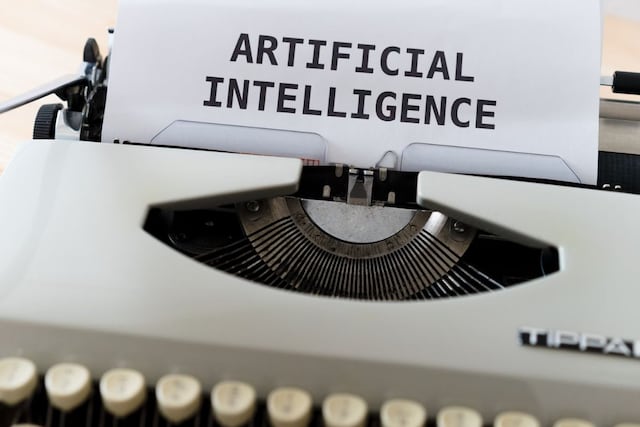
The Cyberspace Administration of China (CAC) drafted a new set of rules to regulate artificial intelligence (AI) companies and systems last week. The main focus of these rules is to outline the activities that chatbots and AI tools cannot participate in, as well as the practices these machines should implement to align with the country’s laws.

Meta completed the acquisition of Singapore-based startup, Manus AI, on Monday. The artificial intelligence (AI) company is known for its autonomous general-purpose AI agent, which can complete a range of tasks based on user prompts. The AI agent was released in March, and later the company introduced a subscription-based service to make it widely available.

Major hotel groups have had a longstanding rivalry with online travel agencies (OTAs) over customer bookings, but a new competitor has now entered the arena. With more and more companies offering agentic artificial intelligence (AI) tools that can book a hotel online, hoteliers are reportedly intensifying efforts to win over customers.

AI Impact Summit 2026, India’s inaugural artificial intelligence (AI) event, will be held between February 16 and 20 in New Delhi. Ahead of the event, the Ministry of Electronics and Information Technology (MeitY) shared the vision, thematic structure, and progress of the summit. During the briefing, it was revealed that the AI summit will focus on democratising AI infrastructure to prevent the risk of the technology being controlled by a small set of companies.

LG has announced that it will debut the LG Gallery TV at CES 2026, which starts on January 6. Designed as a lifestyle-focused display, the Gallery TV uses a MiniLED 4K panel, a slim flush-mount design, and magnetic frames to blend into home interiors. Available in 55-inch and 65-inch sizes, it features Gallery Mode, developed with museum curators and integrates the LG Gallery+ service, which offers access to over 4,500 artworks, custom AI-generated visuals, and background music.